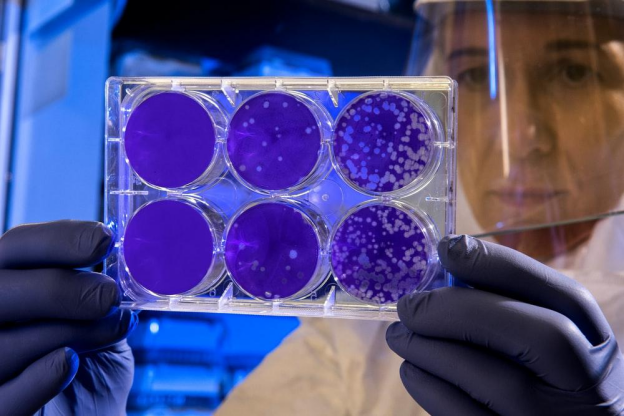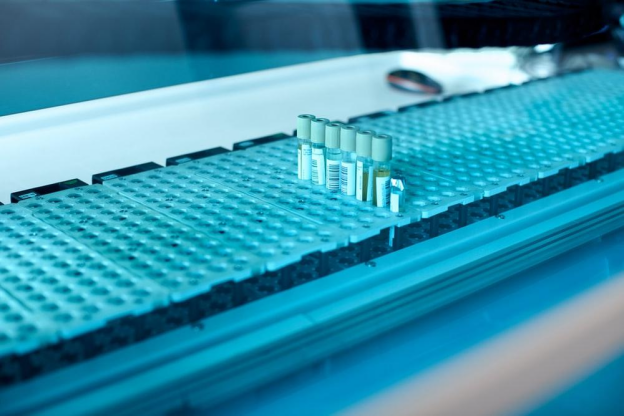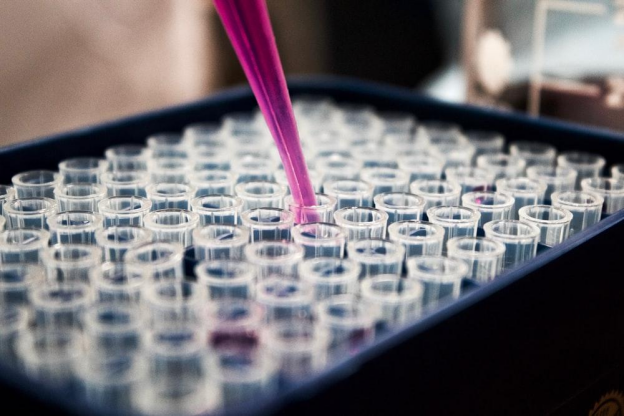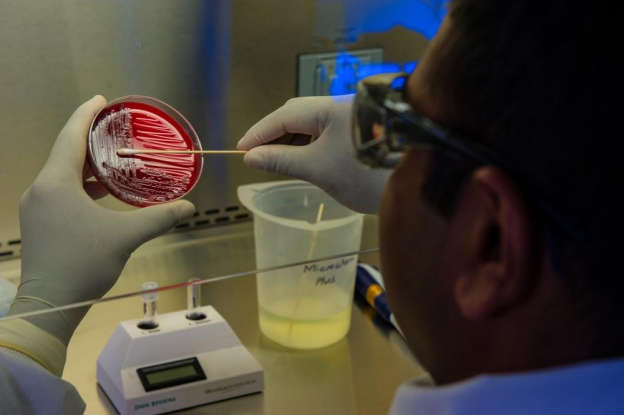True Facts About Custom Protein Expression You Must Know
Jun 2nd 2022
The demand for recombinant proteins in biometric research and other fields has increased significantly. While producing high-quality proteins is often tricky, the commercial availability of protein expression services has made the process widespread. Producing recombinant proteins entails cloning protein-coding sequences into a suitable expression vector and then transforming them into host cells. Custom protein expression is an integral part of recombinant protein production. Here's everything you need to know about custom protein expression. We describe factors that affect soluble protein expression and how to change them.
There Are Different Protein Expression Services

Image source: https://unsplash.com/photos/LiNIONbajm4
Protein expression is a biological process of producing proteins in cells using artificial genetic material optimized by molecular biology. It refers to how proteins are synthesized, modified, and regulated in living organisms. In protein research, custom protein expression applies to the laboratory techniques required to manufacture proteins.
The proteins are synthesized depending on the functional needs of the cell. Choosing the proper protein expression system is crucial to the success of recombinant protein expression. Several factors come into play when selecting a protein expression system, such as the cost, protein yield, and intended application.
Every protein has a unique biochemical feature in the expression process. The protein expression services include gene synthesis, codon optimization, vector designs, protein purification, and protein quality control testing. Additional services include protein labeling, endotoxin removal, and protein interaction analysis.
Quality antibody production is an essential determining factor in custom protein expression. When choosing an expression system for the production, consider several factors such as desired yield, protein type, and functional activity requirement. You should also learn how to use Elisa test kits from Elisa Kit Manufacturers to optimize protein production by increasing the expression and solubility of overexpressed proteins.
The Host Strain Can Influence Expression of Heterologous Proteins.
Protein expression is available in several species and cell systems. However, the success of custom protein expression requires selecting the best expression host that can improve protein solubility. Some host cells have been proven to be superior in protein expression systems. There are different expression hosts when looking to produce custom proteins. The most common hosts are bacteria, yeast, antigen, and mammalian cells.
Bacteria-adapted strains form the best expression host for custom antibody production. They are the simplest, fastest, and least expensive option for making sufficient protein antigens for polyclonal antibody production. E. coli expression systems are part of the bacterial strain used mainly for recombinant proteins because of their low cost and simple structure. It's the most widely used protein expression system because of its rapid growth and ease of scaling up. The commercially available E. coli strain is designed for the specific expression of proteins acceptable to proteolysis. It is ideal for antigen expression and function protein expression for non-glycosylated proteins.
Mammalian cells have a unique advantage of correct folding and proper post-translational modification. They are primarily used when studying the function of a particular protein in a physiologically relevant environment. The proteins produced by mammalian cells are similar to native proteins. Hence, when using the mammalian cells, you're likely to obtain the same level of bioactivity as the natural protein. The mammalian cells also generate high protein yields and allow the highest level of post-translational processing and functional activity. However, they are associated with low expression levels and complicated operations.
Yeast expression produces mammalian-like proteins and is highly economical. In molecular biology, yeast expression vectors can introduce DNA into the yeast cells for protein expression. Due to its stability, you can use the yeast expression to prepare functional proteins requiring certain modifications. It's easy to get a high purity protein with yeast expression because it can secrete the expressed exogenous protein into the extracellular matrix. The system uses proprietary expression cell lines to prepare clones and isolate and purify them according to the solid phase peptide synthesis protocol. You choose the yeast expression vector when producing proteins that require specific modifications.
You can also choose the baculovirus expression system. This insect expression system can translate and modify foreign proteins similar to eukaryotes. The expression system provides higher protein expression levels with simple post-translational modification. It also has a large genome that enables inserting significant exogenous genes, making it ideal with more considerable molecular weight. Choose this system because it's easier to amplify and produce recombinant proteins on a larger scale. The correct expression host supports the heterologous protein expression and enhances its solubility.
A Suitable Expression Vector Can Influence Protein Solubility.

Image source: https://unsplash.com/photos/X_lOGO8Jdw0
An expression vector introduces a specific gene into a target cell. The DNA molecule carries a particular gene in the host cell and uses its protein synthesis machinery to produce the protein. Due to the importance of expression vectors in producing recombinant proteins, you must use an ideal expression vector depending on the expression system. The vector should be specific to the system.
When choosing an expression vector for custom protein production, you'll need to consider some factors. First, make sure the vector has elements essential for gene expression. It should also include a purification tag for the overall purification process. It's often necessary to know how to do ELISA test to determine which one produces the maximum yield of soluble proteins.
In most cases, the expression vector for protein production has a purification tag that helps purify the proteins once the expression process is over. Apart from the purification tag, they may have other specific tags and fusion proteins to help understand the target protein's function and interactions. Know the strength of the promoter when choosing a suitable expression vector. The correct promoter should be strong enough to allow high product accumulation within host cells while minimizing any unfavorable impact, like toxicity, on cell growth. Hence, a strong promoter is needed for maximum protein yield, while a cold-shock promoter is best for aggregation-prone proteins where the expression is carried out at low temperatures.
Consider the nature of the protein target and its desired downstream use when selecting a promoter system. When dealing with their toxic protein, use promoter systems with deficient basal expression.
You should also consider the vector size when choosing a suitable expression vector. The success of this process requires using relatively small molecules as vectors to ensure the convenience of manipulation. Avoid large vectors because they can interfere with the replication and stability as they fold more slowly and aggregate. You can prevent aggregation and facilitate folding in E. coli protein expression by using folding catalysts in the production. This allows encoding the target with a second protein found on the same or a separate plasmid.
Change Expression Conditions to Improve the Solubility of Proteins.

Image source: https://unsplash.com/photos/pwcKF7L4-no
The expression conditions can affect the overall protein production sequence during custom protein expression. For example, high expression temperatures affect the replication and transcription rates.
Start by using robust expression promoters to lead the protein aggregation before folding. You may need to reduce the rate of translation and transcription to facilitate folding. Reducing these rates allows the synthesized proteins to conclude before they aggregate.
Make sure you use low expression temperatures to improve the recombinant protein solubility. Low temperatures help slow down the cell processes, thus reducing the transcription, translation, and protein aggregation rates. Lowering the temperatures also minimizes the degradation of antibody sensitivity. In contrast, high temperatures can affect the translation, replication, and transcription rates of protein expression.
Another strategy is to lower the induction agent concentration. This helps reduce the transcription rates and can play a role in improving the recombinant protein solubility. Your selected media can also help enhance the solubility of proteins. In most cases, organizations use batch culture to cultivate cells for recombinant protein expression. Ensure there are enough nutrients in the growth medium to facilitate growth.
Protein Purification Is Important In Custom Protein Expression
The protein expression and purification services help characterize the protein's function, structure, and interaction. During the purification process, proteins are separated from non-protein parts of a mixture to get the desired quality.
Since every protein is different, perform the purification strategy for each protein based on its intended use. You can purify the protein using glutathione with either native or denatured conditions. One of the first antibody production steps Custom protein expression is to use IMAC. If the process demands additional purification, incorporate a size-exclusion chromatography before finishing with the ion-exchange chromatography.
You use an added affinity tag when purifying the expressed protein. This will ensure proteins remain soluble after purifying the expression under non-denaturing conditions. The remaining proteins are then solubilized and purified under denaturing conditions. You can then remove the infinity tag because it helps reduce any remaining non-native sequences in the recombinant protein.
Adding A Stability Sequence Can Improve Production.
A stability sequence creates a buffer solution to optimize the production process. It can also amplify amino acid solubility or polymerization when producing proteins. Adding a stability sequence to the custom protein synthesis stabilizes the unstable protein expression and improves the purification.
Use several tags to improve protein solubility and purification efficiency. Using fusion tags during protein production improves the solubility without mismanaging the protein folding. For example, you can add the fusion tags to the C- and N- terminal protein parts. You can also use peptides comprising amino acids to overcome challenging situations related to protein solubility. Antibody protein sequencing services help deal with stability problems by amplifying amino acid aggregation, solubility, and polymerization.
In most cases, protein solubility and expression yields can be affected by the starting and ending residue of the target domain. During protein expression, use the available functional and structural data to determine the optimal boundaries for the protein domain construct. If there is an unknown domain structure for a protein, attach the protein sequence onto a homologous protein structure to determine the optimal domain boundaries. You can also exploit the prediction of secondary structural elements if the homologous protein structure is unavailable.
Use Codon Optimization To Address Rare Codons.

Image source: https://unsplash.com/photos/tQZ9nTjsQwU
The primary and common reason heterologous proteins cannot express rare codons in the target mRNA. When the target gene has a different codon frequency from the expression host, it could cause translation stalling or premature termination.
You can overcome this codon bias by using codon optimization gene synthesis services. The approach entails using a synonymous codon change to increase protein solubility. It has its advantages, including the option to change the codon bias of a gene to make it compatible with the recombinant host.
Codon optimization entails replacing rare codons with common ones while maintaining the amino acid sequence. When you optimize a gene of interest in a specific heterogeneous expression system, you can enhance its translation rate and overcome limitations associated with differences in codon usage. Custom DNA synthesis is a codon optimization tool that helps circumvent codon bias issues during heterologous protein expression.
When using E. coli, you’ll find expression strains with the rare tRNAs that help overcome the recombinant gene codon bias. It happens by exploiting the natural resource president in tRNAs to enhance protein abundance. Optimized vector design ensures effective antigen production for monoclonal antibody production.
Increasing molecular weight can also affect protein solubility during recombinant production. Using E. Coli as an expression host requires designing individual protein domains instead of full-length proteins. You can also consider using solubility-enhancing fusion tags because they help purify the proteins without affecting their biological or biochemical activities. Since a fusion tag can sometimes interfere with an expressed protein’s biological activity, consider enzymatically removing the tag after the official portal has been purified.
The Bottom Line
A protein expression system is used to achieve high-quality recombinant proteins. Today, custom protein expression has become more affordable thanks to an increase in the number of service companies and advances in synthetic biology. The advanced protein expression optimization technology has also helped maximize the yield and purity of proteins.
This article has discussed some facts you need to know about custom protein expression. When considering which expression system to use, various factors must be considered. Choose the correct expression host for recombinant protein production services and specify a suitable expression vector. There are commercial peptide synthesis companies that help in customer protein expression. These companies have experience in recombinant expression and antibody production.

